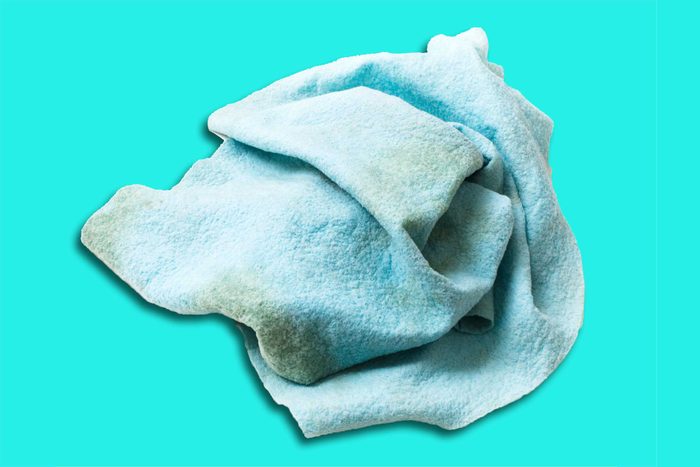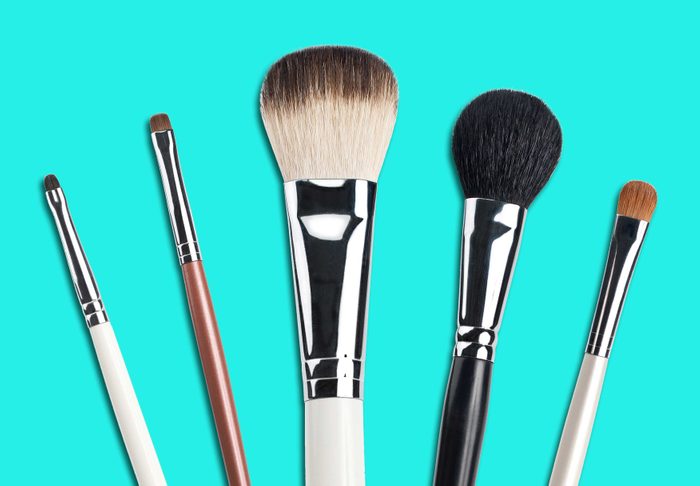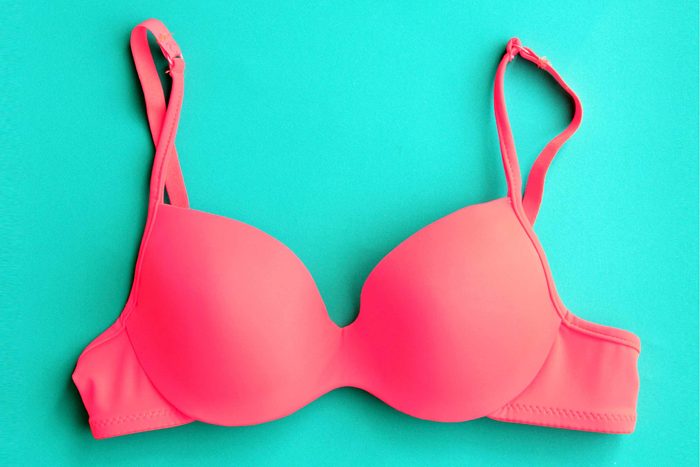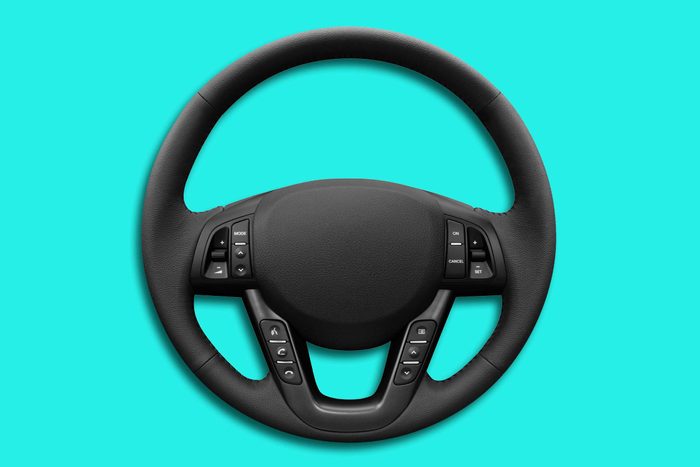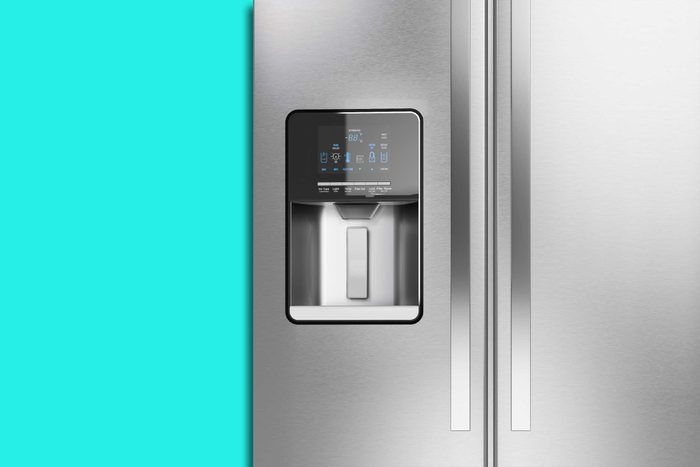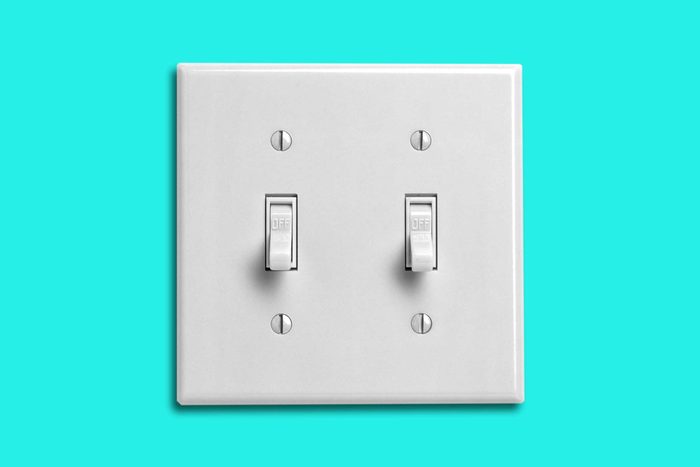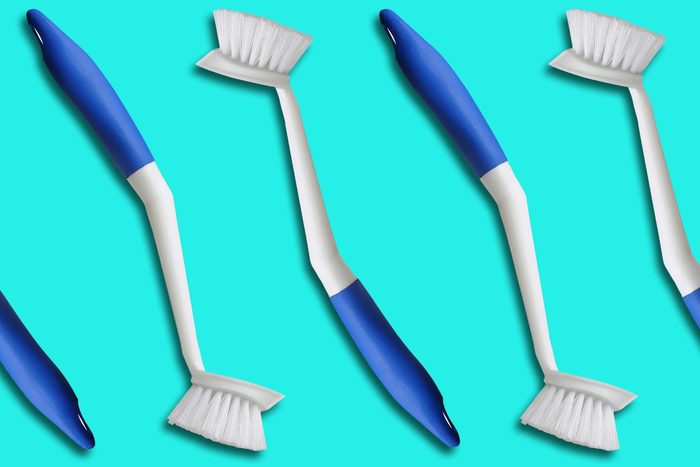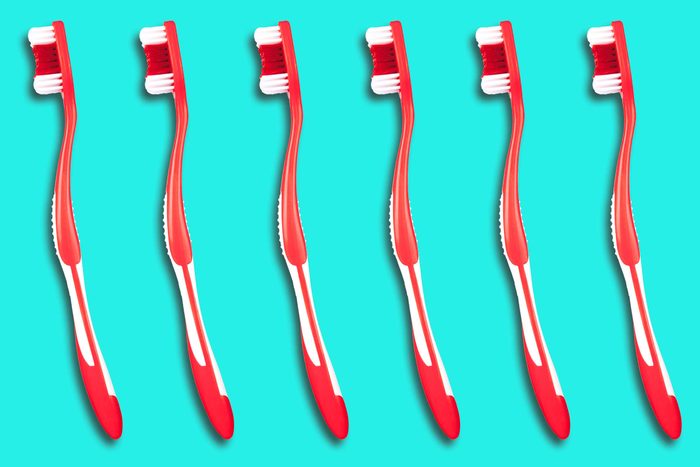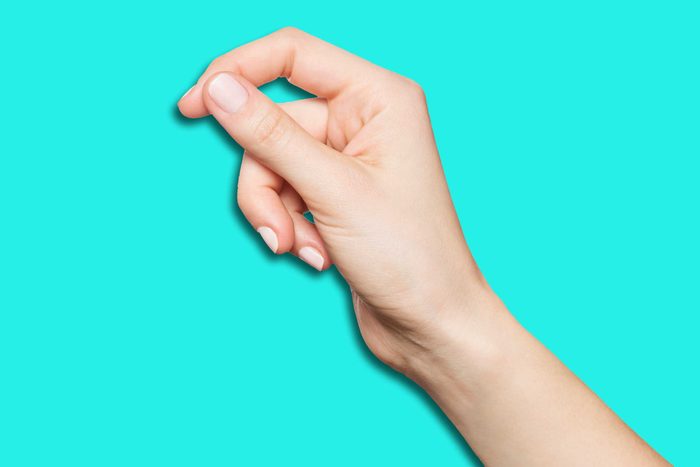Dishcloths
This kitchen counter staple traps oils, fats, and bacteria, which makes them prone to a funky smell if you don’t wash them frequently, says Eating Well magazine. Wash the dishcloth after every use with dish soap and hot water, then let it hang to dry between uses. Then launder them in the washing machine every few days on the hottest cycle, separate from other laundry. “Don’t let the cloths hang out in the washer,” according to Stacy Fraser, Eating Well test kitchen manager. “Get them into the dryer as soon as possible to prevent any straggling bacteria from growing again.”
Makeup brushes
Jo Gilchrist, a 27-year-old mom in the prime of her life, was paralyzed after contracting an antibiotic-resistant MRSA infection. The source of this devastating bacteria? An unwashed makeup brush. When she borrowed a friend’s brush she inadvertently swept the bacteria into an open sore left by a pimple, which then spread the infection throughout her body. While most of us won’t see such horrific consequences from rarely cleaned brushes, almost all of us carry the staphylococcus bacteria on our skin. So it’s likely that your makeup brushes, sponges, and applicators carry that and other harmful germs too. To avoid infection, breakouts, or skin irritation, experts recommend washing your brushes in warm soapy water after each use or at least once a week.
Bras
Bras may look beautiful, but thanks to the sweat and oils from your skin they can be the perfect environment to grow ugly bacteria-especially when you wear them day in and day out. While most of the bacteria found in a bra are harmless, in some cases they can cause rashes, odors, and even infections. Most experts recommend washing your bra every two to three wears, which can seem like a lot considering that many bras need to be hand-washed and air-dried. It’s best to stock up so you always have a clean option. And check out these other common bra mistakes you don’t know you’re making.
Steering wheels
Here’s your gross fact for the day: Your car steering wheel is dirtier than a public toilet. Researchers from Queen Mary University in London swabbed the ring and found 700 bacteria per square inch-nearly nine times more than what they found on public toilet seats. Now consider that the steering wheel is usually the first thing you touch when you get in the car and that many of us also eat, apply makeup, or floss while driving. To make sure you’re not driving carpool in a cesspool, keep a package of cleaning wipes in your car and regularly wipe down the wheel as well as the gear shift knob, radio buttons, and handles.
iStock/Grassetto
Refrigerator water dispensers
Just look at the water catcher full of stagnant liquid in your fridge door, and you can see how it would be a perfect breeding ground for germs. But the danger goes beyond what you can see and into the entire water dispenser, according to a study done by the National Sanitation Foundation. Researchers found “concerning” levels of yeast, mold, and bacteria inside and outside the in-unit water dispensers. To stay safe, make sure you empty the water-catching tray on a regular basis and routinely wipe down all the external parts. For a guide on how to sanitize the internal parts, check with your refrigerator instruction manual.
Mops and brooms
It may sound counterintuitive, but you need to clean your cleaning supplies. Mops, brooms, rags, sponges, and other reusable items can accumulate high levels of harmful bacteria-and then spread them throughout your house. Rather than fixing the germy problem, these cleaning tools may be causing them, said researchers from England’s Leeds Metropolitan University. To combat this problem, experts recommend switching to microfibre mops and cloths, which can be thrown in the washing machine between uses.
Light switches
What’s the first thing you do when you go to the bathroom? Turn on the light, most likely. Then you probably turn it off before leaving. While you get kudos for saving electricity, you may also be spreading bacteria. And it’s not just a problem in the bathroom. A University of Houston study found that our grimy fingers make light switches one of the most germ-contaminated fixtures in our homes and in public places. To stay safe at home give your switches a quick wipe-down once a week. In public you can either operate switches with your elbows instead of your fingers or just be diligent about washing your hands (or both).
Remote controls
When you fight for the remote control you may think the biggest battle is between you and your sports-loving spouse, but according to a study from the University of Arizona, you should be more worried about fighting bacteria. Researchers found that remote controls harboured more germs than many other common items in hospital rooms, of all places. It makes sense-after all, when was the last time you sat down and wiped between all those tiny buttons? Even at home, it’s worth doing a thorough cleaning with an antibacterial wipe at least once a month.
Toilet brush… handles
Despite what you may think, your toilet brush isn’t the germiest thing in your house. While no one exactly recommends eating off of it, the toilet cleaner often sanitizes the brush as well. But it’s another story for the handle of the brush and the container it sits in, both of which can be cesspools of bacteria. To truly get your bathroom clean, make sure you disinfect all the surfaces of your brush when you’re done using it and wipe out the container as well. Or you can switch to disposable brushes or wipes.
Toothbrushes
There isn’t any easy way to tell you this but: The majority of toothbrushes have poop on them. According to a study published by the American Society of Microbiology, toothbrushes, especially those in communal bathrooms, showed a high level of fecal matter contamination. And if that wasn’t bad enough, the researchers also found icky germs like E. coli and Staph. But before you freak out, we’ve got some easy tips for keeping your toothbrush clean and happy. Hint: It starts with not storing your toothbrush next to a toilet.
Your hands
We’re not your mother, but hear us out anyhow: You need to wash your hands more. Your hands are a major way you transfer germs from objects and other people to yourself. Instead of thinking just about when to wash your hands after doing something-using the bathroom, cutting up chicken, visiting a petting zoo-also consider when you need to lather up before a certain activity; say, eating, applying makeup, inserting contact lenses, and sleeping.
This article originally appeared on RD.com.
Related features:
The Best Ways to Wipe Out Germs at Home
13 Very Personal Details Your House Reveals About You
How to Properly Clean Fruits and Vegetables
